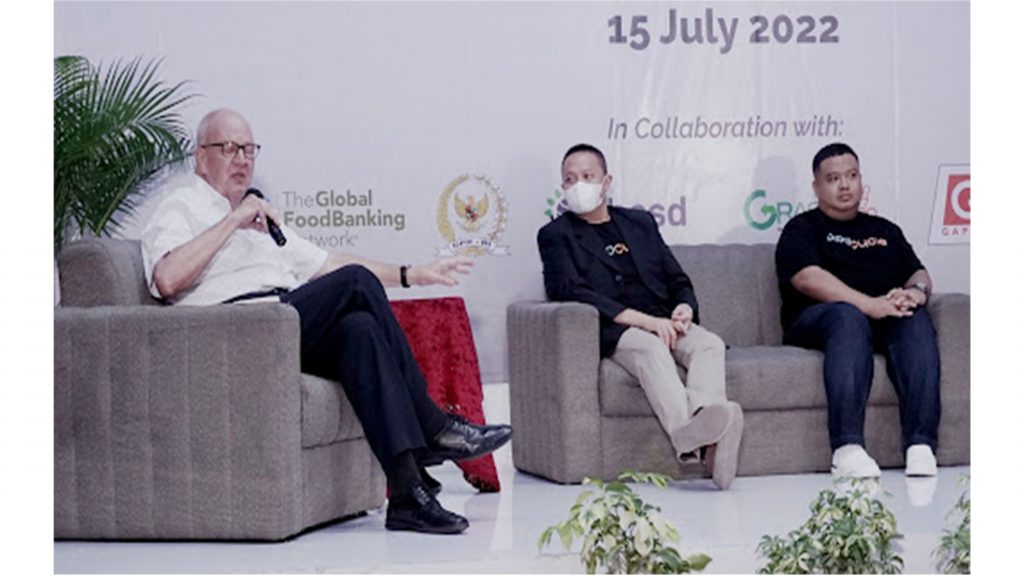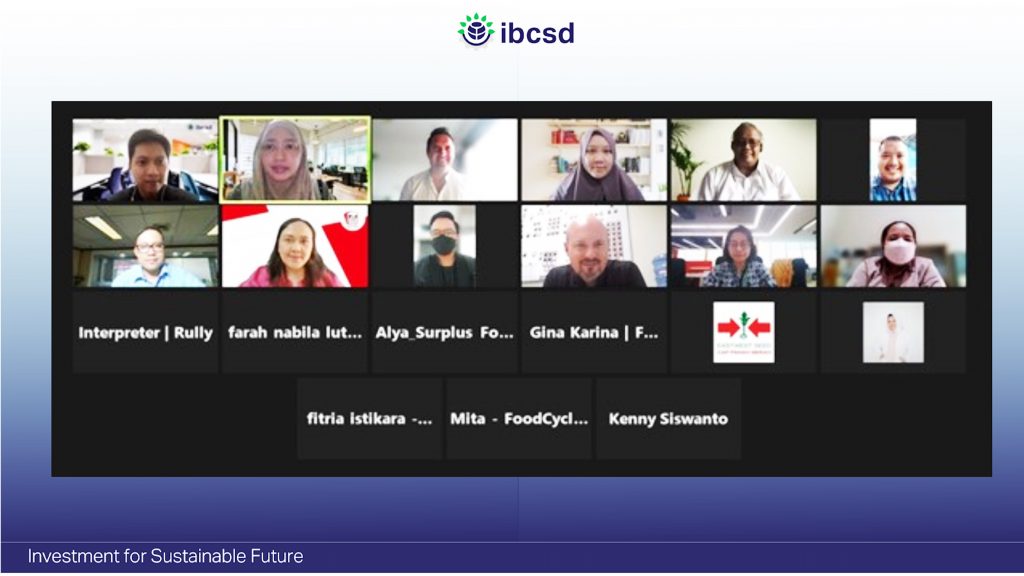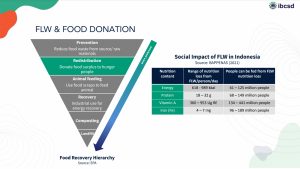The issue of food waste generation is a problem that is often underestimated. In fact, food waste generation from consumption activities is significant. The Consumindful initiative with the slogan “Eat Wiser, No Leftover” is a step taken by the Indonesia Business Council for Sustainable Development (IBCSD) as an effort to contribute in reducing food waste. The project was initiated by IBCSD together with WRAP and GRASP 2030 with the support of the Danish Embassy in Indonesia.
“The Consumindful initiative is expected to further encourage positive behavior of the community and industry to reduce food waste and cultivate food donations,” said Indah Budiani, Executive Director of IBCSD in her remarks at the Consumindful launch event which took place in Yogyakarta, April 4, 2023.
The Consumindful launch event marks the beginning of a movement to invite the public to participate in reducing food waste in Indonesia. This movement is expected to amplify the message to a wider audience to be wiser in consuming and not wasting food. Spreading the message of the importance of reducing food waste is considered important, because Indonesia experiences economic losses of 4-5% of total GDP due to food shrinkage and waste problems based on Bappenas data in 2021.
“There is an SDG target to reduce food waste at the retail and consumer level by 50%. Meanwhile, on average in Indonesia, food waste production per individual per year reaches 1-2 quintals per year according to Bappenas data,” said Nita Yulianis as Director of Food and Nutrition Vigilance at the National Food Agency in her keynote speech delivered at this event. She continued, “Integrative and collaborative efforts are needed to reduce food waste production in Indonesia.”
Changes in consumer behavior related to food waste reduction are necessary, as it is known that the majority of food waste is generated from consumption activities. Therefore, Consumindful’s campaign strategy is to encourage consumers to prevent food waste at the household level. The Consumindful initiative is in collaboration with WRAP, a UK-based non-profit environmental organization with experience working on projects related to consumer behavior change. “WRAP is excited to be working with IBCSD again to tackle food shrinkage and waste in Indonesia. Consumindful is an exciting project to support mindful consumption and realize a sustainable future for people and the planet,” said Michael Jones, WRAP’s International Partnership Manager.
The Consumindful initiative is also made possible by the support of the Danish Embassy in Indonesia. “Changing people’s habits to reduce food waste is a difficult thing to do, so innovative approaches are needed to make it happen. The collaboration of IBCSD and WRAP can create a small but impactful strategy through the Consumindful initiative with the support of the Danish Embassy,” said Hanne Larsen, Minister Counsellor for Food and Agriculture at the Danish Embassy in Indonesia.
Consumindful is a follow-up initiative to an earlier initiative called GRASP 2030 (Gotong Royong Atasi Susut dan Limbah Pangan 2030) which was launched on September 8, 2021. GRASP 2030 is a concrete effort to unite all actors across the food system chain in reducing food loss and waste in Indonesia. A total of 22 actors including companies, associations, and other organizations in the food sector have committed to participate in this movement. This event was also made possible with the support of Kalbe Nutritionals and Nutrifood Indonesia, which are part of GRASP 2030. “Let us take real action through individual and organizational behavior, which hopefully will reduce food waste in Indonesia,” said Cogito Ergo Sumadi Rasan, Chairman of GRASP 2030.
Yogyakarta Cares about Food Waste
Yogyakarta was chosen as the launch site for Consumindful, because it is known as a tourist and student area with people coming from other regions, making food waste handling efforts in Yogyakarta very important. In addition, the Provincial Government of Yogyakarta Special Region (Pemprov DIY) also has a commitment to encourage food waste handling efforts.
The Provincial Government of Yogyakarta Special Region, represented by Plh. Assistant for Economy and Development, Yuna Pancawati, conveyed the need to consume food more wisely and without leftovers, and underlined that the Consumindful initiative is very important in reducing food waste.
In a panel discussion session attended by stakeholders from government, industry, and academia, the Head of the DIY Agriculture and Food Security Agency (DPKP), Sugeng Purwanto, mentioned that “The DIY Provincial Government has a commitment in handling food waste through Governor Instruction No. 33 of 2021 on handling food shrinkage and waste. In realizing the mandate of the instruction, socialization and education on food waste prevention are carried out in the community as well as studies related to this matter.” Meanwhile, the Head of the DIY Tourism Office, Singgih Raharjo, said, “The DIY Tourism Office has a collaboration program with start-up Surplus that helps distribute excess food in hotels, cafes and restaurants by giving a discounted price on the food sold.”
Solving the food waste problem from various perspectives and sectors needs to be done to ensure the food waste reduction target is achieved. “The industry has a role in reducing food waste by designing products that suit the needs of consumers and support mindful consumption,” said Arief Purwanto Nugroho, Head of Communication & Sustainability, Kalbe Nutritionals. The hospitality and restaurant industry sector, which is one of the actors in the food industry, also needs to take part in reducing food waste. Said by Erwan Sakti, Executive Chef of Platinum Hotel Adisucipto, “The culinary industry can contribute to reducing food waste by conducting proper processing, organizing portions served to consumers, conducting education, and conducting unconsumed food donation activities.”
Apart from the food industry, the role of academia is equally important in carrying out public education functions related to efforts to prevent food waste. “Food waste prevention can be done with various strategies. Academia has a role to play in developing food distribution platforms, developing food waste processing technology, and educating the public on food waste issues,” said Prof. Dr. Ir. Eni Harmayani, M.Sc., Dean of the Faculty of Agricultural Technology, Universitas Gadjah Mada.
Going forward, the Consumindful initiative will continue to campaign for food waste reduction efforts. Collaboration and support from various parties are needed to realize the goal of a food waste-free Indonesia. Hopefully, more and more people and industries will care about the issue of food waste and take real action in their daily lives.
Contact:
Nurina Izazi, Communication and Member Relation Manager IBCSD, [email protected], +62-813-3261-4268











